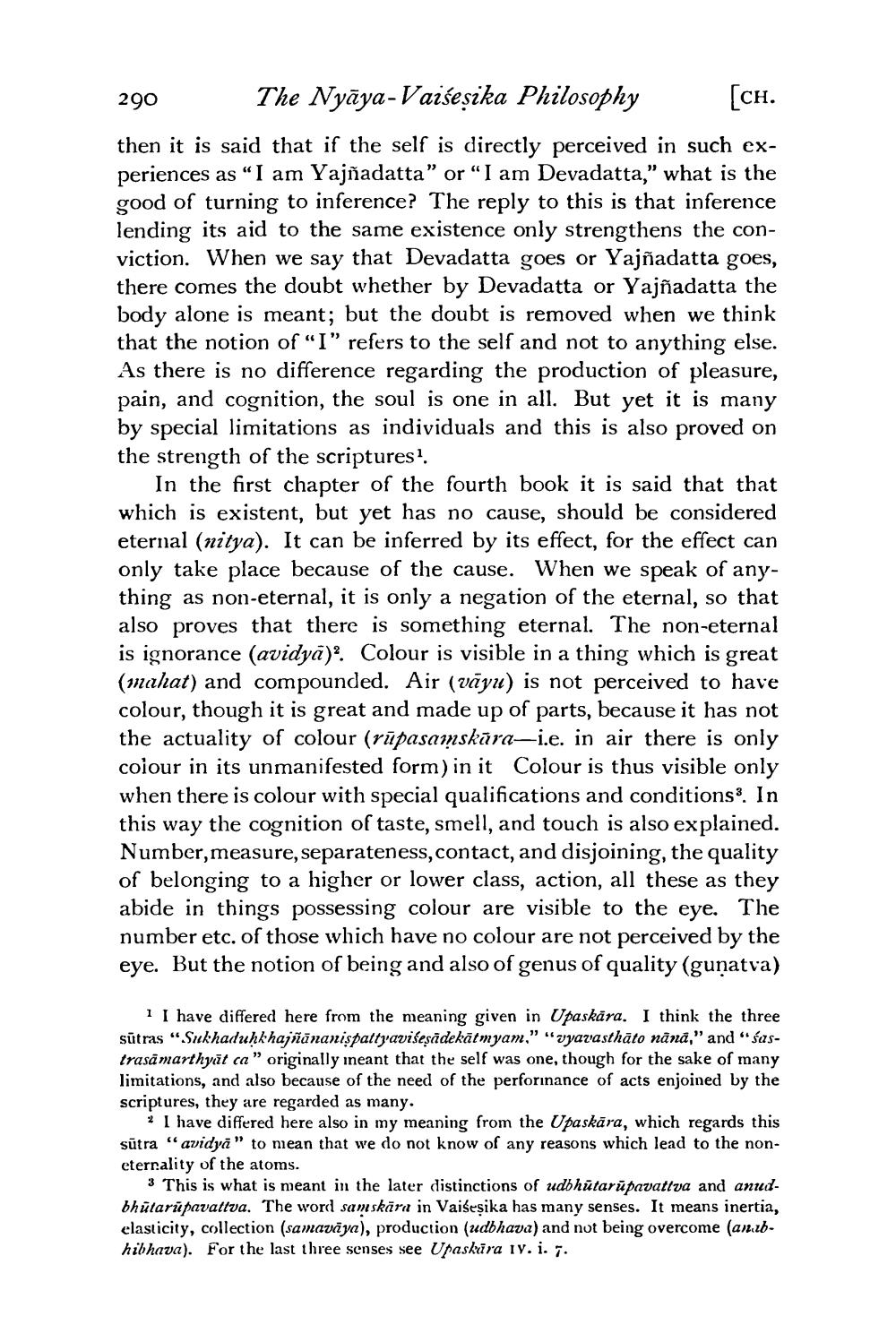________________
290
The Nyāya-Vaišeșika Philosophy
[CH.
then it is said that if the self is directly perceived in such experiences as “I am Yajñadatta" or "I am Devadatta," what is the good of turning to inference? The reply to this is that inference lending its aid to the same existence only strengthens the conviction. When we say that Devadatta goes or Yajñadatta goes, there comes the doubt whether by Devadatta or Yajñadatta the body alone is meant; but the doubt is removed when we think that the notion of “I” refers to the self and not to anything else. As there is no difference regarding the production of pleasure, pain, and cognition, the soul is one in all. But yet it is many by special limitations as individuals and this is also proved on the strength of the scriptures?
In the first chapter of the fourth book it is said that that which is existent, but yet has no cause, should be considered eternal (nitya). It can be inferred by its effect, for the effect can only take place because of the cause. When we speak of anything as non-eternal, it is only a negation of the eternal, so that also proves that there is something eternal. The non-eternal is ignorance (avidyā)? Colour is visible in a thing which is great (mahat) and compounded. Air (vāyu) is not perceived to have colour, though it is great and made up of parts, because it has not the actuality of colour (rūpasaiņskāra-i.e. in air there is only colour in its unmanifested form) in it Colour is thus visible only when there is colour with special qualifications and conditions. In this way the cognition of taste, smell, and touch is also explained. Number, measure, separateness, contact, and disjoining, the quality of belonging to a higher or lower class, action, all these as they abide in things possessing colour are visible to the eye. The number etc. of those which have no colour are not perceived by the eye. But the notion of being and also of genus of quality (guņatva)
i I have differed here from the meaning given in Upaskāra. I think the three sūtras "Sukhaduhkhajñānanispattyavises dekātmyam," "vyavasthāto nānā," and "astrasamarthyāt ca" originally ineant that the self was one, though for the sake of many limitations, and also because of the need of the perforinance of acts enjoined by the scriptures, they are regarded as many.
? I have differed here also in my meaning from the Upaskāra, which regards this sūtra “avidyā" to mean that we do not know of any reasons which lead to the noneternality of the atoms.
3 This is what is meant in the later distinctions of udbhūtarūpavattva and anudbhūtarüpavattva. The word samskära in Vaišesika has many senses. It means inertia, elasticity, collection (samavāya), production (udbhava) and not being overcome (anub. hibhava). For the last three senses see Upaskura iv. i. 7.




